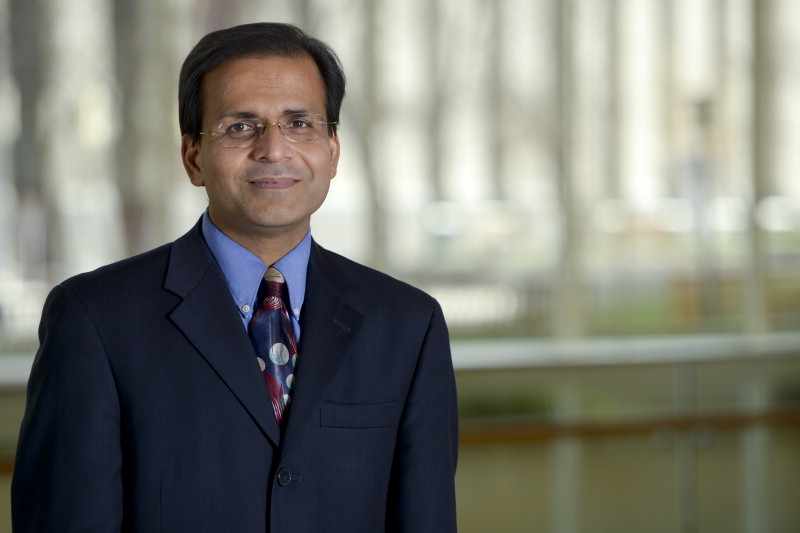-
Featured News
Something to Think About: Keep it simple

Dr. Amit Sood says, "My life will be much simpler once I accept that I don’t need everyone to approve all aspects of me."
Dear friend,
Shall I plunk down an extra $124 and upgrade from economy to economy comfort? That croissant looks delicious, but I am really not that hungry. Should I be friendly and initiate a conversation with the person sitting next to me or just stay quiet? Where should I keep my bag—in the overhead compartment or beneath the seat in front of me? Soda, apple juice, coffee, or just plain water—what do I really want? In a single flight, my brain faces dozens of conflicting decisions.
The brain is by design a conflicted organ. Our central limbic circuitry loves doughnuts and fears spiders—seeking short-term gratification and running away from perceived fears. Our higher cortical brain thinks of the long term, feels compassion, provides inhibitory control, and delays short-term gratification. The two work together in each experience, giving you different points of view. They also seed tremendous conflicts. Your kidneys, for example, have no conflicts about what to do right now, but your brain does, by its intrinsic design.
The conflicted design of the brain also affects the values I live by. I struggle between selfishness and selflessness, revenge and forgiveness, greed and contentment, fear and fearlessness. I am not consistent. Others are also inconsistent (because we all have conflicted brains)—in their preferences, motives, constraints, and fears—and that inconsistency guides their vision. No wonder I exist in as many versions as there are people seeing me.
Yet, I want to be approved, liked, appreciated, and loved by everyone who knows me.
That’s a recipe for disappointment. Every eye views a different me based on what it is seeing and what it saw earlier. Eyes don’t choose to be biased; that’s how they are designed.
While I strive to gain approval of as many as possible, I should recognize that I will invariably fail in this effort. With my countless imperfections and the infinite ways by which others look at me, there is a good chance that several people will be looking at aspects of me that need improvement. Several of these aspects I don’t even presently know. So I should see disapproval as an opportunity to grow. Those are the only times I will get to know the parts of me that need editing.
Why should I do this? Because it isn’t about me. My physical being is finite and, in the big picture, almost completely irrelevant. I am a little brick in this vast castle of life, a brick that won’t stand the test of time. I should simply serve my short-term purpose as I see it, take accolades and rejections with the same enthusiasm, and find in each of them opportunities to grow so I can better serve. That’ll keep it simple.
May you not be inflated by accolades or deflated by rejections; may you receive more accolades than rejections.
Take care.
Amit

Read previous blog posts and follow @AmitSoodMD on Twitter.







